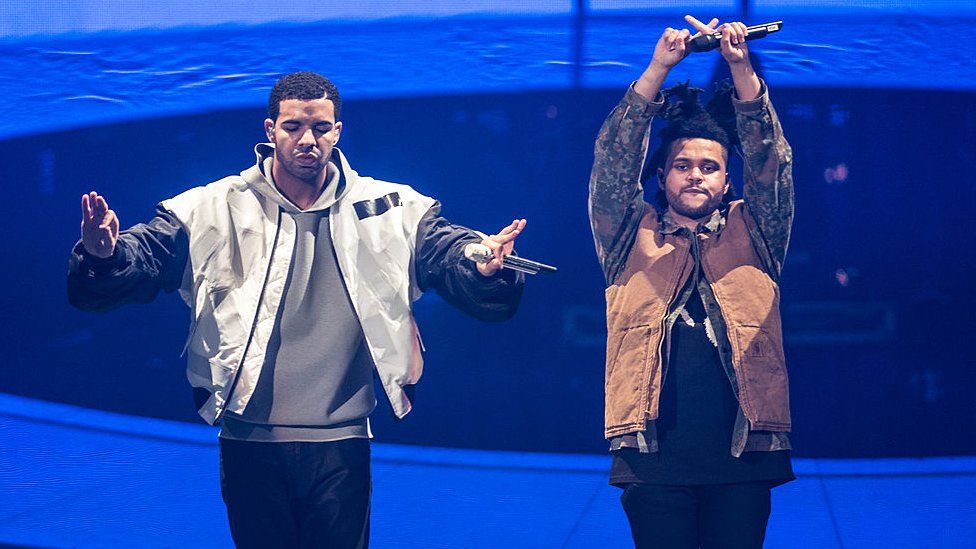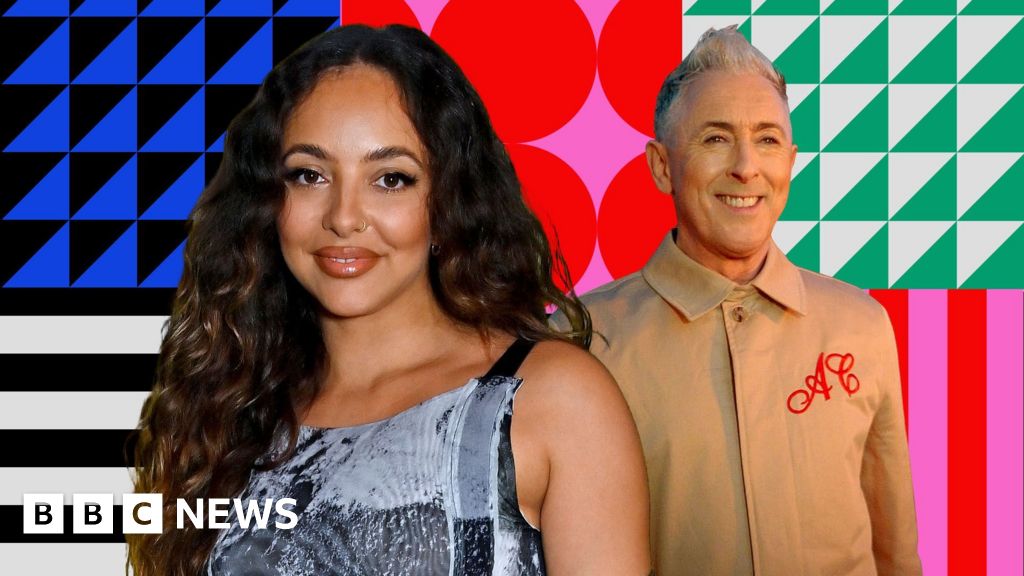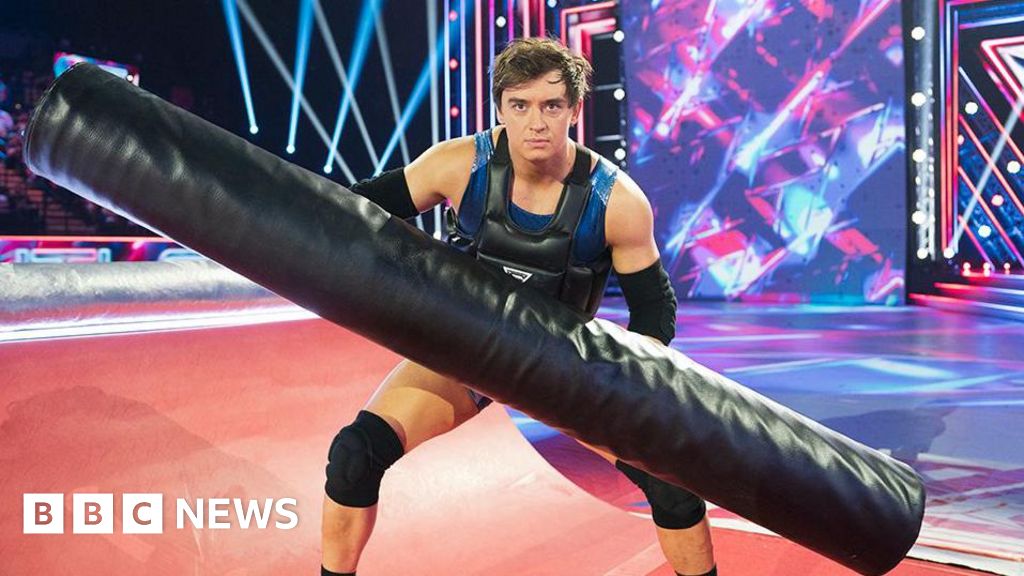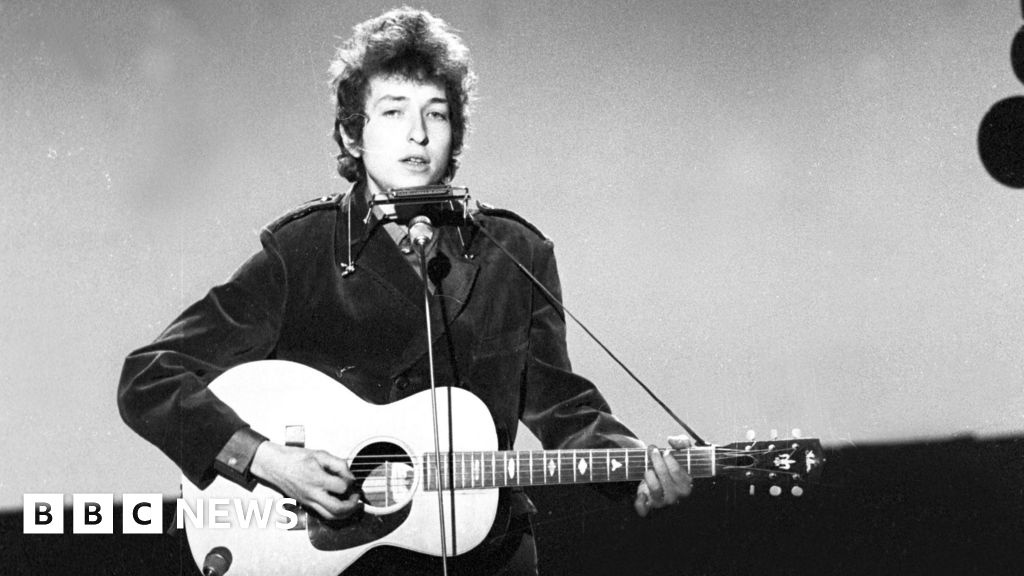ARTICLE AD BOX
 Image source, Getty Images
Image source, Getty Images
The stars have genuinely collaborated on previous songs including The Ride and Live For
By Mark Savage
BBC Music Correspondent
A song that uses Artificial Intelligence to clone the voices of Drake and The Weeknd has gone viral on social media.
Called Heart On My Sleeve, the track simulates the two stars trading verses about pop star and actress Selena Gomez, who previously dated The Weeknd.
The creator, known as @ghostwriter, claims the song was created by software trained on the musician's voices.
"This is just the beginning," they wrote under the song's YouTube video.
"We really are in a new era," responded one listener in the comments. "Can't even tell what's legit or fake anymore."
"This is the 1st example of AI-generated music that really wowed me," added Mckay Wrigley, an AI developer, on Twitter.
Since it was posted on Friday, the song has been viewed more than 8.5 million times on TikTok. The full version has also been played 254,000 times on Spotify.
It opens with a repetitive piano figure that transitions into a booming bass beat, as the AI Drake raps: "I came in with my ex like Selena to flex/ Bumpin' Justin Bieber the fever ain't left."
The fake Weeknd responds with a verse where he "alleges" Gomez cheated on him before their break-up in 2017.
The track even includes a call-out to producer Metro Boomin', who has worked with artists such as 21 Savage, Future, Nicki Minaj and Kanye West.
This YouTube post cannot be displayed in your browser. Please enable Javascript or try a different browser.View original video on YouTube
The BBC is not responsible for the content of external sites. YouTube content may contain adverts.
Skip youtube video by ghostwriter
Allow YouTube content?
This article contains content provided by Google YouTube. We ask for your permission before anything is loaded, as they may be using cookies and other technologies. You may want to read Google’s cookie policy, external and privacy policy, external before accepting. To view this content choose ‘accept and continue’.
The BBC is not responsible for the content of external sites. YouTube content may contain adverts.
It's not perfect. The song has the scratchy, low quality vibe of a bootlegged demo; and the vocals are sometimes slurred and glitchy - likely to be artefacts of the AI process.
Neither artist has responded to the song yet, but Drake recently expressed displeasure at his voice being cloned.
"This is the final straw AI," he posted on Instagram, after stumbling across a fan-made video in which he appeared to be rapping the Ice Spice track Munch (Feeling U).
Drake's complaint came after Universal Music Group wrote to streaming services including Spotify and Apple Music, asking them to prevent artificial intelligence companies from accessing their libraries.
It is thought companies have been using the music to "train" their software.
"We will not hesitate to take steps to protect our rights and those of our artists," UMG warned in the email, first obtained by the Financial Times.
Several websites already offer fans the ability to create new songs using soundalike voices of pop's biggest stars.
French DJ David Guetta recently used a site called uberduck.ai to mimic the voice of Eminem and add it to one of his instrumentals.
"I'm sure the future of music is in AI," he told the BBC.
However, he said the technology could only be useful "as a tool" - like the drum machine and the sampler before it.
"Nothing is going to replace taste," he said. "What defines an artist is, you have a certain taste, you have a certain type of emotion you want to express, and you're going to use all the modern instruments to do that."
Image source, Getty Images
Image caption,Guetta was named producer of the year at the Brits 2023
Other faked tracks that have gone viral recently include a "deepfake" of Rihanna singing Beyoncé's Cuff It; and a cloned Kanye West singing the acoustic ballad Hey There, Delilah.
The rapid rise of the technology has rattled the music industry. Heart On My Sleeve, for example, does not infringe copyright, as it appears to be an entirely original composition.
The author has also made it explicit that Drake and The Weeknd were not involved in the making of the song, which should (in theory) protect them from a "passing off" claim, where they profit from misleading the audience into believing it is genuine.
In response, a broad coalition of musicians and artists have launched a "Human Artistry Campaign", whose aim is to ensure artificial intelligence will not "erode" human creativity.
Backed by the Recording Industry Association of America, the Association for Independent Music and the BPI - which organises the Brits - the group has outlined seven principles advocating AI best practices, and stressed that copyright protection should only be afforded to music created by humans.
"There is so much potential with AI but it also presents risks to our creative community," said Recording Academy CEO Harvey Mason Jr, launching the initiative.
"It's crucial that we get this right early on so we don't risk losing the artistic magic that only humans can create."

 1 year ago
40
1 year ago
40








 English (US) ·
English (US) ·